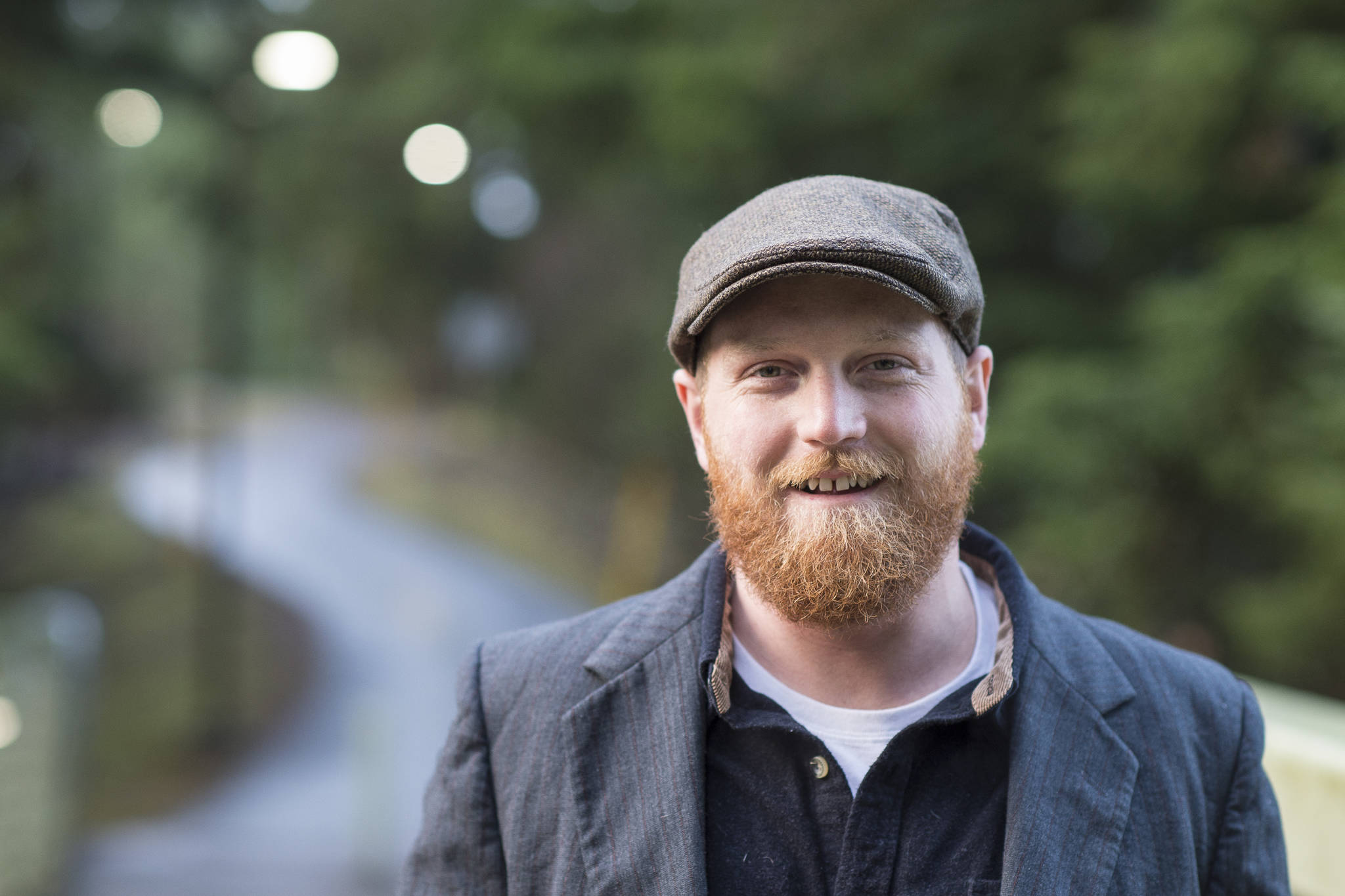Sayéik is a Tlingit word that can be translated to mean voice of a spirit helper.
Historically the name is associated with Douglas Island, and in more recent years, the word that was added onto Gastineau Community School’s name and contained in the Sayéik Sacred Site Memorial.
Now, it’s also the title of a student research film made by University of Alaska Southeast student Luke Holton.
“Sayéik” was screened Wednesday night to a mostly full house at the Gold Town Nickelodeon downtown. The film, which examines Alaska Native and non-Native place names, was presented by Juneau-Douglas City Museum, and it was funded through the University of Alaska’s Undergraduate Research, Experiential & Creative Activities grant.
“I felt like place names were a huge opportunity in front of us to say we’re not as ignorant as we were a hundred years ago, and a chance to make positive change,” Holton said before the screening.
Since the documentary is a research film, it is available for free on Vimeo.
“Sayéik” particularly examined Native names through the prism of the history of Douglas, especially in light of the burning of Native homes and graves that five years ago were accidentally unearthed during a renovations at the school.
During a panel discussion that was at least twice as long as the 24-minute movie, it was made plain that some steps toward healing have been made, but the process was not complete.
Dan Monteith, associate professor of anthropology for UAS, Holton’s mentor and an adopted Tlingit, and Barbara Cadiente-Nelson, Douglas Indian Association council member, and a mostly quiet Holton made up the panel.
Monteith, who specializes in ethnohistory, economic anthropology, cultural ecology pertaining to subsistence, Tlingit art and oral narratives, and archeology of Southeast Alaska, said during his research into the past mistreatment of the site of the former Native village and burial grounds, it’s become evident such things happened because of institutionalized racism.
“We need to address the historical trauma, so we can move on,” Monteith said.
Audience members shared some of their experiences in boarding schools, which Alaska Natives were forced to attend well into the the 1930s and separated children from their families and preventing them from speaking their language and expressing their cultural identity.
How to redress those pains is tough to determine.
“How do we address this?” Cadiente-Nelson asked. “Does it stop here? Have we done enough? Until our community is thriving, our children are thriving, then we’ve done our responsibility.”
The panel said acknowledging Native names is part of the equation.
Cadiente-Nelson said the Juneau community has made strides in that area.
She recalled withstanding anti-Native vandalism during her teaching days and compared it to ongoing efforts to add Yadaa.at Kalé. to Juneau-Douglas High School’s name.
However, Cadiente-Nelson said there is still an onus on Alaska Natives to pursue name changes that aren’t ideal.
She said when Sayéik was added to the former Gastineau Community School’s name, it should have become its only name, but there was a desire in the community to not “disturb that beast.”
“We were sensitive to that,” Cadiente-Nelson said. “Overly so. I regret that. It should be named Sayéik Community School.”
“There is a cautiousness we have to take with some humility and strength to move carefully,” she added. “Why should that be our burden as a Native community?”
More about the film and the filmmaker
“Sayéik” was prompted by Holton’s curiosity about words.
“I was interested in etymology, place names and the study of words,” Holton said.
Holton does not speak Lingít, the Tlingit language, and is not Alaska Native. But he was curious to learn more about the language, which is seeing in the midst of a revitalization effort, and Holton said he began to read and read up on old English to become more familiar with the history of the language he does speak.
While researching for the film, Holton said the names colonizing explorers gave to locations tended to be more surprising than their already existing Native names.
He said a lot of times these came from a barely cursory knowledge of a place and a need to fill in a blank spot on a map.
“Explorers looked at one terrain feature one time for one second and made a name for it,” Holton said
Also often times, Holton said the names were more or less place holders in logs that later became widely used rather than nefarious stabs at glory.
“Most of the explorers didn’t submit their logs to the Board of Geographic Names,” Holton said. “I don’t want to vilify the explorers. It’s just easy to do.”
• Contact arts and culture reporter Ben Hohenstatt at (907)523-2243 or bhohenstatt@juneauempire.com.

